
Editing makes up a HUGE part of the writing process. Oh, if all we writers had to do was sit down and slap glorious words on a page. If only it were so easy. For those new to this profession, here’s a truth bomb. This job is rewarding but it isn’t for the faint of heart. Writing is tough.
Professionals only make it seem easy.
I recently turned in my ghostwriting project. My client has given me permission to share in some of the glory, so to speak. The Trap: Sex, Social Media, and Surveillance Capitalism is now LIVE. Yes, my client worked in the adult industry for twenty years. It’s a book about the pitfalls of adult entertainment (for performers as well as the audience).
Aaand the final ended up at around 91,000 words (though, believe it or not, it’s a super quick read for being such a deep book).
Sure, writing about this topic was tough. Writing with a partner, the research, making sure I held true to the client’s voice, etc. was enough to make me want to go live in a blanket fort with my old Barbies and tubs of frosting. All in all, though, the writing was easy compared to the editing.
For those who are new, who maybe don’t know this next part, feel free to skim down to the tips 🙂 .
Editing is More Than Proofreading
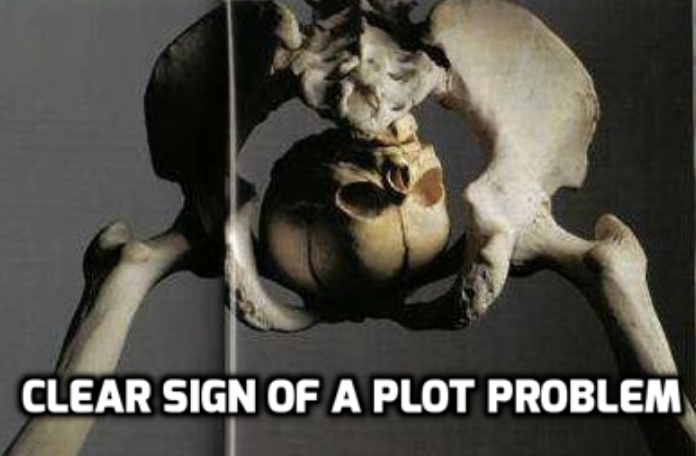
Many new authors enter into professional publishing believing a few myths, which I shall now debunk. First of all, there are MANY types of editing/editors and the cost will vary. When I wrote my first 187,000 word ‘novel’ I:
- was an idiot who was too epically stupid to know I was epically stupid
- believed editors were only there to check for grammar issues, typos, punctuation, etc.
- thought that I didn’t need to sully my hands hunting down typos because editors would catch all my boo-boos for me
*clutches sides laughing*
The EFA (Editorial Freelancers Association) has a great breakdown of all the types of editing, range of cost, pace to expect, etc. HERE.
I’ve done all kinds of editing, but my strength is actually developmental editing (namely because I prefer it and my up close vision is 20/200).
If you refer to the chart, developmental editing can run from $46-$50 per hour with a pace of 4-6 pages per hour. What does this mean?
Let’s use an example.
Say we have a sci-fi novel that runs about 65,000 words (with a ‘page’ being 250 words). This works out to 260 pages. Divide this by 6 and that is roughly 44 hours. This means a professional copy edit can easily run between $2000-$2200…
…and that is only the first pass.
I’d also like to mention these numbers are averages from the EFA. I’ve known editors who charge $8,000 to $10,000 or more. But even if an editor offers a bargain basement deal—like say $500—if they have to go through multiple times? Back at a couple grand.
Count the Cost

A huge part of why I harp on learning about craft and how to write is that it will save you a TON of money when you hire an editor. If a book is clean and the author understands three-act structure, grammar, POV, character arc, and the basics of storytelling, I generally can up my pace…A LOT. If the content is solid, then odds are also good I’ll only need to make ONE pass.
Fairly safe to assume I am not alone in this.
*shout out to all the editors*
If I can get to the actual EDITING, then I can do 10-20 pages an hour. This lowers our total time down to 26-13 hours, cutting the bill at least in HALF. But, when I am bogged down with plot holes large enough to drive an Amazon truck through? POV issues? Typos, jarring jumps in time, and all the other basic stuff the author should have fixed?
It takes me MUCH LONGER.
The same, obviously, goes for all kinds of editors and proofreaders. I have LITERALLY had writers tell me they didn’t bother fixing their copy because, “That was the editor’s job.”
Okay, if that author sends pages (a mess) to an agent, that will likely be an automatic rejection. Publishers are in the business of making money. Spending the cost of a trip to Europe on developmental and line-editing is simply bad business.
Should that author want to self-publish then editing is a HUGE deal. When we self-publish, we are the publisher. This means we incur all the costs usually absorbed by others.
If we get lazy and have to spend a small fortune on editing alone, how many books do we need to sell to simply get out of the red?
Why Does Editing Matter?
Before we get to the tips, I am going to state (probably) the obvious. I shouldn’t have to, but whatever. I’ve read some wonderful writing samples, but there were so many errors they jarred me out of the story.
Typos and rookie blunders frustrate readers.
I recently borrowed a book on Audible and had to stop reading. While the story was cool, the writing was AWFUL. It was as if someone gifted the author a thesaurus and he decided to use every single descriptor. When the description is so heavy that I forget the point of the sentence? That’s a problem. And I LOVE description! So to irritate me is a real feat.
There were too many places where the author botched subject-verb agreement. He had run-on sentences everywhere. The story was just plain terrible writing. It’s great that this author could put a book out on Audible, but, as with all Kindle Unlimited books, the author is paid by the page. If weak writing makes readers give up, then that’s a waste of everyone’s time and effort.
All of this, for the record, was/is totally avoidable.
DIY Editing
The tips I am going to give y’all today are to help save time and money. YOU cannot edit your own work…not fully. When I negotiated my ghostwriting contract, I made this very clear to my client. I CANNOT SEE ALL MY OWN MISTAKES (and neither can y’all). Editing had to be a separate expense, a task delegated to a totally different person.
This said, I write super clean copy. Once the book was final, the editor could get right to proofreading and line-editing. Though Cait made suggestions regarding content throughout, ultimately that was because she was being nice. She didn’t have to make any suggestions.
Cait didn’t have to go rewrite the book because I didn’t grasp non-fiction essentials such as using an outline, thesis statements, building/developing an argument, how to cite works, and so on and so forth.
We are editors, not ghost writers. A ghost writer costs a lot more money.
As promised, I shall sally forth to the tips.
#1 DIY Adverb Removal
Despite what you might have been told, not ALL adverbs are evil. Redundant adverbs are evil. If someone shouts loudly? How else are they going to shout? Whispering quietly?
***Wow, glad the author explained how ‘whispering’ works.
Ah, but if a character whispers seductively? The adverb seductively gives us a quality to the whisper that isn’t inherent in the definition of the verb. Check your work for adverbs and kill the redundant ones.
Either we need to choose a stronger verb, or we’re treating the reader like an idiot.
If a character walks quickly to the train platform, then choose a verb that means ‘to walk quickly’ (stride, jog, hurry) and use that one instead. If a character yells loudly, ditch the loudly.
We understand how yelling ‘works.’
#2 Editing Out the Cray-Cray
First and foremost, readers want a STORY. Stories are more than loads of ‘pretty writing’ and using thousand-dollar words. Stories are about problems. A character thinks life is fine, then PROBLEM. The character then must struggle, grow, evolve, make choices to eventually SOLVE the problem (win, lose, draw).
Pretty description is optional. Big words are also optional. Alas, if we want to be a writer who uses description then we need to wield with economy.
Few things make me as giddy as a glorious line of description or a new vocabulary word. Many readers (and writers) are like crows.
We see the shinies and tuck them away because they’re THAT cool. One of my favorite books is The Devil in the White City.
When describing a miserable afternoon in late 19th century Chicago, the author had many options of how to do this. Instead of, “The day was humid and stifling,” Erik Larson wrote, “The air hung with the heavy stillness of a tapestry.“
There’s nothing, per se, wrong with the first description. But Larson’s line was far more visceral because he made use of multiple senses simultaneously.
But some writers take similes too far.
I’ve seen writers who’ve used so much ‘wordsmithery’ that I had no idea what the heck they were even trying to say. The goal of a novel is to hook readers into a dramatic narrative, not prove we own a thesaurus.
Exhibit A:
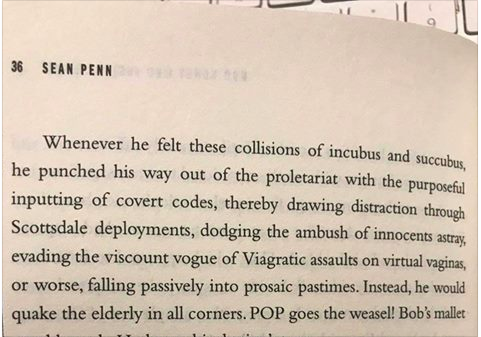
***Word on the street is the NSA is contemplating either revoking Sean Penn’s permission to own a thesaurus OR they want to weaponize his writing.
Metaphors and similes are fantastic literary devices, but need to be used with intention. Yes, in school, our teachers or professors didn’t ding us for using forty-two metaphors in five pages, but their job was to teach us how to properly use a metaphor or simile, NOT prepare us for commercial publication as professional novelists.
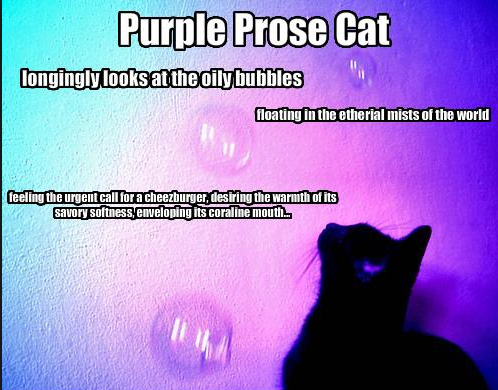
When we use too much of this verbal glitter, we can create what’s called ‘purple prose.’ Go through your pages and highlight metaphors and similes.
Pick THE BEST and CUT THE REST.
Any kind of description must serve the story and propel the dramatic action forward. If it doesn’t do this? CUT!
#3 Editing Out the Stage Direction
Again, the more time an editor devotes to a project, the higher the bill. Also, if an editor charges by the page, we could be paying for a lot of filler we could have removed ourselves.
Alfred Hitchcock said, “Drama is life with the dull bits cut out.” Readers don’t need every single step of a day. We live it, why would we read it?
Yet, I see a lot of samples like this:
Fifi opened her eyes at dawn. She pulled back her covers and placed her feet on the floor. Padding across the room, she reached for a robe hanging on her door. Her stomach growled, so she went downstairs and opened the fridge for the carton of orange juice, then grabbed a glass from the cabinet. Turning around, she searched for a granola bar….
OH, GET ON WITH IT!
An editor is going to cut all of this because NOTHING IS HAPPENING. Also, readers pretty much know how the whole ‘getting juice’ phenomenon works. They don’t need a blow-by-blow.
Fifi reached out her hand to open the door.
NO KIDDING.
Unless Fifi has telekinetic powers, do readers need the direction?
Filler pads the word count, but it also pads the editing bill. The verbs turn, look, grab, pull are possible red flags you’re doing too much stage direction. My advice is to do a Word Find and search for these verbs and their variations (I.e. look, looked, looking). See if the action is necessary or if you’re holding the reader’s brain.
If you’re holding the reader’s brain? Return it, please.
#4 Beware of Painful & Alien Movement of Body Parts
Her eyes flew to the other end of the restaurant.
He dropped his head.
Um…ouch.
Make sure your character keeps all body parts attached. Her gaze can follow a person and so can her stare, but if her eyes follow? The carpet gets them fuzzy with dust bunnies and then they don’t slide back in her sockets as easily.
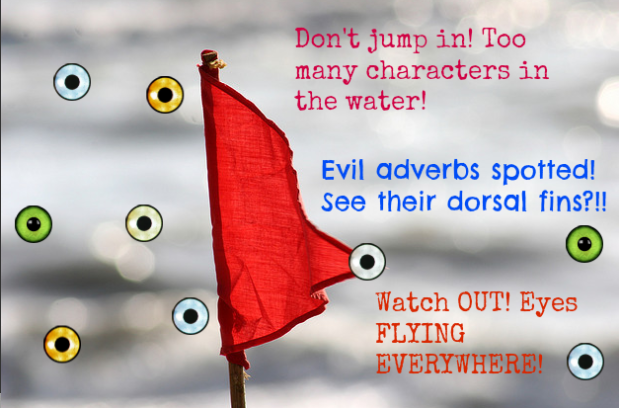
#5 Ease Up on the Physiology
Fifi’s head pounded. She ran for the door, her heart hammering and wild pulse beating relentlessly in her head. Her breath came in choking sobs. All she could do was gasp. Panic made her throat clench and stomach heave. Mind numb, she reached for the door, fingers trembling.
GET TO IT ALREADY!
After a page of this? I need a nap. After two pages? I need a drink. We can only take so much heart pounding, thrumming, hammering before we just get worn out. That and I read a lot of samples where the character has her heart pounding so much, I’m waiting for her to slip into cardiac arrest at any moment.
Physiological reactions can become echoes. If every page the character has her stomach churning, roiling and rolling, our reader will need an antacid before finishing the chapter (provided she finishes at all).
I strongly recommend a copy of Angela Ackerman and Becca Puglisi’s Emotion Thesaurus to help you vary physiology. Also, if someone’s heart is pounding, that’s okay. We just don’t need to be told this over and over and…over.
We (readers) assume the character’s heart is still pounding until she’s out of danger.
No need to remind us.
Really.
#6 Editing Out Odd Sentence Construction
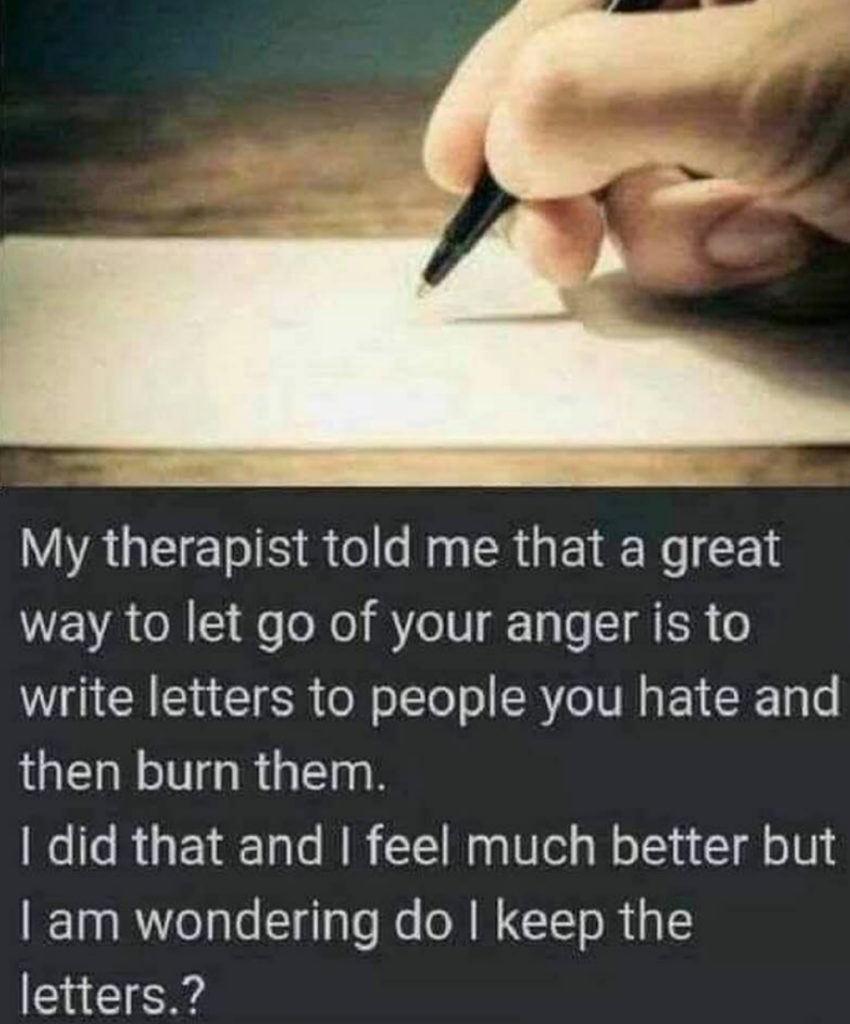
In an effort to break up and vary sentence structure, many emerging writers will craft sentences like this:
With the months of stress pressing down on her head, Jessie started ironing the restaurant tablecloths with a fury.
First, this is backing into the action. Though technically correct (enough), it’s easy to lose a reader if we have too many sentences like this. Active sentences are the easiest on the brain and keep the reader immersed in the fictive dream.
Then there are the picky issues with the example above. For instance, when we use the word ‘down,’ then ‘on’ is redundant.
Also, Jessie is either ironing or not ironing. ‘Started’ is overused and makes sloppy writing (this actually goes back to the whole stage direction thing).
Jessie ironed the restaurant tablecloths with a fury, months of stress pressing on her shoulders.
Another way writers will vary the beginning of sentences is they’ll default to what’s known as passive voice.
Passive:
The door was kicked in by the EMTs.
Active:
EMTs kicked in the door.
If you go through your pages and see WAS clusters? That’s a HUGE hint that passive voice has infected your story.
Many writers end up with strange sentence construction because they realize every sentence is starting with the character’s name or the appropriate pronoun. They’re trying to ameliorate the repetition of Jessie, Jessie, Jessie, she, she, she. The problem, then, is not sentence construction, rather the writer needs to open the lens of the storytelling.
Remember our character doesn’t need to be the subject of every sentence. We’re telling a story. This means we can work with setting, other characters, etc.
#7 Get Rid of ‘Clever’ Tags
Ideally, if we do a good job with our characters, the reader should know who’s talking without tags because speech patterns differ. If all our characters ‘speak’ the same way, that is an issue we need to remedy.
We can’t always do this, which means we can use a tag. Tags are fine, but keep it simple. This isn’t the place to get clever.
‘You are such a jerk,’ she laughed.
A character can’t ‘laugh’ something. They can’t ‘spit,’ ‘snarl,’ or ‘grouse’ words either. They can SAY and ever so often they can ASK. Said used properly becomes white noise.
NOTE: Use said as a tag…just don’t get crazy. If you beat it up, it also gets distracting and annoying.
But again, used properly readers don’t generally see it. It keeps them in the story and cooking along. If we want to add things like laughing, griping, complaining, then fine. It just generally shouldn’t be the tag.
“You are such a jerk.” She laughed and flicked brownie batter onto Fabio’s white shirt.
Notice how sentences like the one above also keep us from beating said to death?
I swear the funniest instance of bizarre tags was a new writer who just would NOT listen to me and she insisted on using all these crazy tags. So instead of exclaimed when her character yelled something, she tagged with…he ejaculated.
*Editor Kristen falls over laughing*
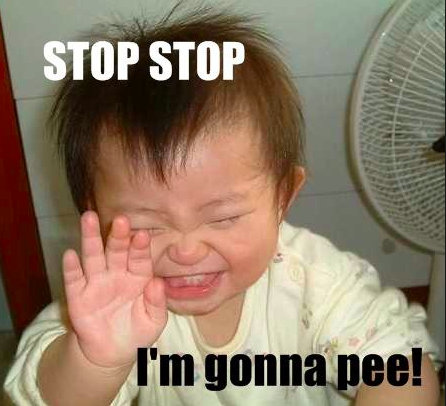
Okay y’all ALL sniggered at that one. Feel free to be creative just not in the tags, ya dig? 😉
Tip #8 Open Your EYES
One thing I will promise y’all ahead of time is there really is only one way to find all the typos. Publish your book. Seriously. Before I became a professional author, I was super judgy about typos. Now? If I get through a book and there are only a handful of oopses? That is an AWESOME book. Especially if the book is longer…like 91,000 words.
Maybe I am wrong and I wish all of you a perfect book, but I am still going to offer some hacks I’ve learned over the years.
One of the reasons it is almost impossible to edit our own work is we have SEEN our own writing SO many times, our brains insert what should be there instead of seeing what is actually on the page. We become blind to our own errors.
Here are some tricks to help y’all SEE.
One, is to change the font. Sometimes shifting from Times New Roman to, say, Courier, or Callibri can help. There is also a downloadable font for people who are dyslexic that is AWESOME.
Another trick is to change the color of the background. When I switch to white letters on a black background, a lot of the repeated words, floating commas, and homeless punctuation practically leaps off the page.
There is also a function in Word that will read your manuscript aloud to you. It certainly isn’t going to sound like Simon Vance, but hearing the words will help you pick up echoes, passive voice, weird sentence construction and the like.
I LOVE Hearing from Y’all! What are Your Thoughts?
I know there was a lot in today’s post, but I wanted to offer y’all a comprehensive reference. There are plenty of books I can recommend in a later post, but this hit a lot of the high points…and I added in stuff I have learned from years of trial and error.
What are your questions? Suggestions for topics? Thoughts, problems, ways you’ve figured out how to self-edit?
***FYI: Back in May, I offered my reward for commenting. The next day, I found out my mom had to go in for emergency cancer surgery. She is fine, but I had to stay with her almost two weeks and everything went sideways being away.
SO…May’s winner is Katherine Smits. CONGRATULATIONS! E-mail me at kristen at wana intl dot com. I need your pages in Word, double-spaced, one-inch margins, and 250 words is considered a ‘page.’ Feel free to go a little over if you need to finish a thought or paragraph, just don’t get crazy 😀 . Please put CONTEST WINNER in all caps in the header of the email so I can FIND you. Being gone so long, my email has gone a tad feral.
I love hearing from you and am not above bribery!
What do you WIN? For the month of JULY, for everyone who leaves a comment, I will put your name in a hat. If you comment and link back to my blog on your blog, you get your name in the hat twice. What do you win? The unvarnished truth from yours truly. I will pick a winner once a month and it will be a critique of the first 20 pages of your novel, or your query letter, or your synopsis (5 pages or less).








33 comments
6 pings
Skip to comment form
ahhhh … thank the powers for this post!!! [forwards to 9 authors] I have railed about every one of these tips until my face is blue!
Self-editing is work — if you want to do it right. And in the past 3 years only one client had used beta readers, a critique group, and followed the story line/plot through each character — and the edit (I specialize in development & line edits) was soooo easy to go through. :o)))
My tip to add to your excellent listing is this: follow every character’s path through the book, isolate any stumbles or ‘whaaaa?’ spots, note interactions with other characters, determine what the purpose of those interactions might be (or what you thought they were ‘sposed to be) and whether the purpose was met, be strict with all continuity. Once you’re done with each character, have beat your notes into submission with rewrites that blend the characters beautifully — take a day off — then come back and do it again. You WILL find more issues, but this time all the shrubbery has been trimmed and rewrites should nearly write themselves.
Thank you, oh great Lambness — may your remaining summer be glorious and free of any life shocks…
Excellent column! I recently began to use ProWritingAid, which is so useful, at least for proofing and copyediting (not content/developmental editing) and one helpful element is that the program suggests things you might change, but also explains why. Today I started a new book, terrific premise, great blurb, and (at this point) promises a fun story. But there was typo in the FIRST sentence of the book. Sadly, there are repeats of the same error (adding an apostrophe to every word that ends in s )throughout the text.
So you are right about reading your work so much that you read what should be there as opposed to what really is there. I’m to the point now where I can’t even tell whether it’s any good or not. I’m so familiar with it I can’t tell if it works or not. What do you do in a case like that?
Author
I regularly offer what I call my ‘The Write Stuff’ special. I give you a deep and honest look at your first 20 pages, what you did right, wrong, could be improved and extensive notes on how/what to do. I haven’t offered it in ages obviously because I was ghostwriting this world-changing book. When I get caught up a little I will offer it again so just subscribe to the blog and watch for it? I usually only can do 10 slots (because that is 200 pages of reading).
BUT it is an affordable way to get a pro to look at your work. I really do not need a full ms. In 20 pages I can tell if you have a serious plot issue, are starting in the wrong spot, have bad habits. I will, as I said ALSO tell you what you did well and maybe how to refine that skill even more.
If you make it through my gauntlet, then I do affordable consulting where we take roughly 3 hours and I grill you about your book. I am unwilling to charge thousands of dollars for a book that is too green. It’s unethical. I do all I can to get you to the point you’re ready for a pro to take on your book.
That’s my only suggestion other than if you have friends who read a lot and are willing to be tough, have them beta read. I don’t trust writing groups simply because too many are full of a lot of folks who want to be nice or simply have something to say when nothing might be wrong (or they project their style onto you). Good way to end up with book-by-committee (a.k.a. Franken-Novel).
I hope that helps?
Thank you. I will watch for The Write Stuff in your blog.
Amen to all of your comments, suggestions, advice, and tips!
One habit that puts my teeth on edge is when the author has the character (sort of) observing himself or herself do things, in particular when the POV is from inside the character’s head.. “He saw her come into the room.” vs. “She came into the room.” The second example assumes that if it is stated, the character must have observed it. I think this tendency is called “distancing.” I like to get right into my character’s heads, as deep as possible, to give readers the feeling that they are the character. Distancing takes me out of the stream of the story and places me on the banks of that stream; it doesn’t involve me.
LMAO and reading the better portion out loud to my partner!
Thank you for a great post! Your editing tips and humor are much appreciated.
About having the computer read your work out loud, I use a speech recognition program for writing and to hear a different voice read my words to me. I always find an awkward phrase or overused word. I’ve also found that using the side-by-side page feature in Word helps to show structure and size of sentences and paragraphs. I discovered some bad habits, such as shorter sentences that could be combined and long sentences or paragraphs that should be broken up.
Why did I know, before I even got to the picture example, that you were pulling an excerpt from Sean Penn’s book?
Makes me wonder…
I know this is slightly off-topic, but it’s something I’ve thought about recently. We all give Sean Penn a hard time for that cacophony of literary horrors he wrote (yes, it takes an over-the-top example to address an over-the-top piece of absurdity). But I wonder if we’re not giving him enough credit for his accomplishment. Is he a bad writer? Or is he a great writer who’s secretly a troll?
Think about that for moment.
Here’s the thing: sometimes we can’t help it. Sometimes we’re forced to read one too many classic novels from the 19th century before we turn eighteen, when all we really want is to read something modern and easily identifiable (or at least futuristic and dystopian). Toss in a little literary criticism (because now we’re somehow in our junior year of college, earning a degree that will guarantee we’ll be waiting tables for the next ten years, or acting in Hollywood movies), and you have to wonder at what point do we snap?
At what point did Sean Penn snap? Before or after “Fast Times at Ridgemont High”? How many classics was he forced to read before he could play a believable high school student who orders pizza from class? At what point did he decide classic literature was something to make fun of, not to read?
Here’s my theory: I think he wrote that book to troll literature professors and critics. And if that’s the case, then he might be a closet genius, and his book might be a brilliant piece of satire. Maybe he understands comedy at the molecular level and can wield his thesaurus with such precision that he draws out the laughter intentionally.
That’s assuming, of course, he isn’t just a bad writer with an even worse editor.
But I guess it could go either way.
Just a thought.
Author
Actually I TOTALLY AGREE and have had the same theory since I saw his work. I think he was poking fun at the establishment. That big publishers could sell anything if the brand name was on the cover. I really believe he was doing subterfuge and wrote the WORST stuff possible to see if they (publishers) would bite, and they did…and he made his point. It still makes for an excellent example but NO! I COMPLETELY concur. I don’t for a second think Penn was being serious, as much as he was being satirical.
Fun and funny idea! I love it! That’s thinking outside the box, all right. Although I have absolutely no inclination to read Penn’s book.
Somehow my high school class missed most, or many, of the classics. (I have no clue how that happened.) So, about twenty years later, I set myself on a mission to read the classics. I got through Twain and Kipling in fine fettle and several other notable literary greats, but fell off the wagon with D. H. Lawrence’s “Sons and Lovers.” I ran out of patience waiting for his protagonist to stop mooning over his lady love’s “swan-like neck” and get on with it – anything!
And I ran out of patience with Henry Fielding’s “Tom Jones,” the eponymous hero of which has purported for centuries to be quite the Don Juan. In a book that could have most adequately told the story in one-quarter of the verbiage, the clueless Jones experienced only two sexual encounters, and he didn’t even know what happened in the first one.
I’m afraid that “Madame Bovary” and some Henry James also fell into my same category of “boredom.” I’m not into the action-adventure genre, but in any given story, SOMETHING ought to happen. Too much “great” literature is ponderous.
So I can see why Penn perhaps was playing mind games with the world of the literary critic, in a kind of “the emperor has no clothes” jest.
“Thank you! I’m at the editing stage and these are incredibly, delightful, helpful tips!“ she spews out of her word-hole giddily.
Excellent post, Kristen. You noted one of my bad habits, the use of the word “was.” I’m bad about writing in passive voice and have a hard time fixing it. I use ProWritingAid to self-edit my writing and it is good about picking out all my “was” sentences.
I love this month’s topic and appreciate the examples. Now, I just need to have you sitting on my shoulder while I dig into the third draft of my current project, as editor and also anchor to the chair. Summer offers way too many distractions, don’t you know. Thank you for the information and the clear examples.
Great post, packed full of self editing advice and reminders. I’ll save this one.
I got a 10% discount on the editing of my first novel, because the editor had been one of my beta readers and knew I had a “clean” manuscript.
I suspect your newbie with the ejaculating character had been reading a lot of older books… where that was an accepted way to say someone just blurted something out. It seems to me that as words gain a sexual connotation, they drop out of more widespread use, and then more words get taken over, the boundaries constantly shifting. A phenomenon Jewels Jade would have something to say about, perhaps?
May I just say I love you? This should be required reading for every writer. As an editor, I thank you.
Hi, Kristen. A terrific post that I’ll be sharing with my critique group. That said, I’m going to dare to (partially) disagree with a couple things you wrote.
First, on dialogue tags. I 95% agree with you on over-/misuse of tags but it IS possible to laugh, snarl, hiss, etc. statements. Think about it: we’ve all heard or seen something that was so funny that we spoke while breathing in that pulsed way that laughing causes. Or we’ve been really angry, or in a situation where we needed to say something but do so quietly, and so we spoke in a snarling or hissing way. No, we didn’t use lots of s’s (not shooting for onomatopoeia here), but we did speak in a lower tone of voice, with an underlying growl, or quietly with a lot of rushing air under the words. They key thing is to use those kinds of words only with intention and only when they’re REALLY necessary–when no other word or phrase would convey the way the person was speaking. (It’s the lightning versus the lightning bug.) Too many new authors use these terms too liberally.
Second, “was” by itself isn’t the marker of passive voice. The full marker is “was [past tense verb] by”: “Fluffy was walked by Jolene to the dog park” versus “Jolene walked Fluffy to the dog park.” (Never mind that Fluffy was a cat. What WAS Jolene thinking?) See? Those last two uses of “was” don’t signify passive voice. The object-verb-subject construction is the problem.
One other point (of agreement) on editing costs. I just sent my latest novel off to my editor. If she was charging me her full rate, the cost would have been in the mid-four figures. *winces* Fortunately, because she’s seen my work before, and knows the quality of what she expects to see, she’s given me a substantial discount.
Interesting point about Sean Penn punking the publishing community. Hadn’t thought of that and it could be the only logical explanation for work like that getting published. At least so long as his agent and editor were in on the joke.
Author
Actually we agree on both points, but the blog was already absurdly long so I can’t qualify everything. When teaching concepts to newer authors, I strive to take away all their verbal glitter. For instance, tach them economy of words, to choose stronger verbs, etc.
Of course, there are times we can tag using, ‘she hissed, or ‘he snarled.’ But, I am challenging writers to make the dialogue stronger. It’s like with exclamation point. We CAN use them, but if the dialogue is strong enough we will know whatever is being said is amplified. What I tend to see with new writers is they have wimpy dialogue then try to compensate with tags. So, in the beginning, make that dialogue stronger, and later sure you can use some other tags 😛 .
But you brought up excellent points and gave me an idea for a post!
And yeah, just my gut senses Penn was pulling their leg. It is totally something he’d do. Maybe not. But whatever. He sold books, so GO HIM! LOL
As to ‘was’ not all are incorrect as you pointed out, ergo why I said ‘was clusters.’ If you skim a page and there are a crap ton of these guys, it’s just a red flag to maybe look and see if everything is active.
Great list! I especially appreciated #6.
I’m in the self-editing stage of my WIP and I’m so glad I stumbled upon this post. Thank you for these tips.
Definitely printing this post off. Loved, loved, loved it! Laughed my a** off with #4, because I am SO GUILTY of using flying body parts. I realized it just today as I was editing, for the umpteenth time, a particularly troublesome scene, and I changed and I changed and I changed things again, and those damn eyes kept flying around. Have mercy…
But if my take on tip #6 is correct, it makes me worry. My characters live in 19th century America and speak 19th century American English, which is quite different from 21st century American English – weighted with different sensibilities, more convoluted, slower paced, more genteel, etc. I want to retain the flavor of the past to keep the work honest and transport the reader to their world, but at the same time need to 1.) engage the reader, 2.) not detract with obscure words-that-don’t-mean-what-they-used-to [see ejaculate post above], and 3.) keep enough of the pacing and phraseology of today to make it an easier, but still honest, read. I find myself writing long sentences with lots of commas, like these, that need to be revised. it’s a constant battle. When does voice cede to story?
Your awareness of this is vital. I’ve done a lot of first-person historical reenacting, mostly American Civil War, and it does take a long time and considerable immersion to infuse yourself with that 19th Century voice. I’ve adopted a few terms into my everyday use of language, including the “necessary” – the bathroom, toilet, and/or outhouse. My colleagues at work understand my reference, but no doubt it made them chuckle when they first heard it.
It is tough to build that voice with the necessary (no, not “necessary,” ha ha!) context. But being aware of it will help you capture it.
Are you familiar with the HBO series “Deadwood” that aired in 2002-2004? The producers did a lot of homework and research and replicated the language of the day (1870s South Dakota), which was an amalgam of period slang, archaic (Shakersperean) vernacular, foreign languages, and who knows what other linguistic influences, all very typical of those times. It’s a rough, often gruesome series (like ‘The Sopranos’ in the amount of foul language and blood-letting, but a lot less eating), but listening with a writer’s ear to the language is worth it. Interesting story line, too, and all accurate to what actually happened in Deadwood, things that put it on the map. (It’s where Wild Bill Hickok was killed and where Calamity Jane is buried.)
Author
Great advice. I was going to say something similar. When I wrote historical it took a YEAR at least to learn how they spoke, the idioms, slang, etc. Historical is a different creature.
Sally, thanks for your insight. So interesting that you are a Civil War reenactor. I’ve been consumed by the Civil war for many years, and my WIP takes place during it.
I did start watching Deadwood but it was a little too gritty for me. I guess I’ll have to put on my big girl panties and try it again.
And you’re right, Kristen – Historical is different. (It helps if you’re already an anachronism though.)
Regards.
Author
I agree. ‘Deadwood’ took me three tries but I made myself watch it. It gets a lot better if that is any consolation. It really is VERY helpful in understanding not only the way people spoke and thought but it is an amazing example of layered conflict. And, because it is multiple seasons it more resembles a novel.
As violent and ruthless as al Swearingen is in the Deadwood series, he shows deep compassion when he smothers the epileptic preacher to death. It was the kindest way to put the poor man out of his misery, for there was no hope or future for him in his completely disabled condition. There is a trace of a tear in Swearingen’s eye when he does this deed.
Author
I loathed Swearingen in the beginning, but by the end he was my favorite character. He shows a kindness and compassion that is tough to see until you get to know him. I loved how he treated and stood up for the Chinese community in particular. Even though he was a raging racist, he genuinely loved and cared for them and was willing to risk his life to protect them. Such a strange juxtaposition made him an incredibly layered character in my POV.
Kristen, I enjoyed this article so much. Thank you. It hit on so many of the bugbears that I deal with as an editor. Your wit and charming style are the sugar that makes the medicine go down. 🙂 May I list you and link this article on my Resources page on my website? If so, do you have a wee logo I can attach? Thanks again!
Author
Of course you can share. As for a logo, I have my author pic and the Bad Lamb Academy you see on my landing page. Will either of those do?
Cheers! Most of the rest are little square images. None are photo images, but I can use your author pic, Or … What about the little black lamb favicon?
Author
Use whatever you need.
I’m gonna save this column for when I edit. Loved your pictures. I am home sick with the flu, and my belly laughs turned into a coughing fit.
[…] CONTINUE READING HERE […]
[…] a writer’s skin tingle like glorious prose, right? A couple posts ago, I gave y’all some editing tips. In the meantime, I also mistakenly stumbled across an audio book that should be charged with […]
[…] make a writer’s skin tingle like glorious prose, right? A couple posts ago, I gave y’all some editing tips. In the meantime, I also mistakenly stumbled across an audio book that should be charged with […]
[…] can make a writer’s skin tingle like glorious prose, right? A couple posts ago, I gave y’all some editing tips. In the meantime, I also mistakenly stumbled across an audio book that should be charged with […]
[…] Why Editing Matters & Simple Ways to Make Your Work SHINE […]
[…] Why Editing Matters & Simple Ways to Make Your Work SHINE […]